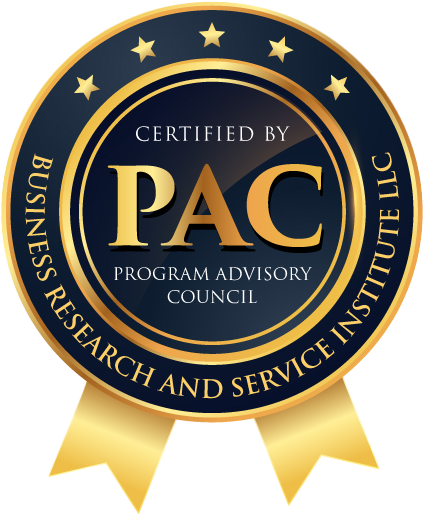Capacity management is the backbone of operational activity in any business organization since it provides an overview of firms’ capabilities to serve client demand without incurring excessive costs.
The approach entails specific procedures for employing resources, such as labor, assets, and manufacturing capacity, in a planned way. It focuses on the match between supply and demand, the reduction of resources consumed, and the improvement of organizational operations.
When further narrowing down the context of capacity management in this article, three aspects will be discussed: capacity requirements planning, capacity utilization, and their proper implementation.
Understanding Capacity Management
Capacity management is an important field that aims to ensure an organization has laid down strategies on how it will utilize its resources to cover its current and future capacity needs. It concerns forecasts of demand, resources, and capacity to ensure that business activities are progressing correctly.
Thus, being able to match resources with demand can reduce cases of overproduction, stock-outs, and other problems that cost money.
What is Capacity Requirements Planning?
One of the key processes of capacity management is capacity requirements planning, commonly known as CRP. It can be defined as the effort of establishing the production capability required to fulfill the demand for goods and services.
CRP is concerned with determining the capacity needed for every production period based on production schedules, work orders, and other related information. This is important for businesses as they can understand where they might experience congestion and plan properly for resource deployment.
CRP typically involves three main steps:
- Forecasting Demand: Forecasting sales and using data from prior years, the current year, and other sources.
- Calculating Capacity: Calculating the capacity needed to fulfill the expected customer traffic. This entails the evaluation of factors such as production schedules and work orders.
- Identifying Gaps: Deducing the capacity differences between the required and available and identifying the shortfalls that should be filled.
By realizing the meaning of capacity requirements planning, companies get closer to the goal of proper supply readiness.
This is why capacity utilization is a critical component of business operations and an area of concern among organizations and professionals engaged in the production process.
The Importance of Capacity Utilization
The efficiency of the manufacturing system is determined by another concept known as capacity utilization in the field of capacity management. It indicates the level to which capacity utilization within organizations involved in the manufacturing of goods and the provision of services is used.
Generally, high capacity utilization signals that a business is optimizing its available capacity, while low utilization may indicate some inefficiency or excess capacity.
While high capacity usage is beneficial in improving profitability and acquiring a competitive advantage, it has a disadvantage: it increases the cost of operation while reducing flexibility. Conversely, low capacity utilization results in increased fixed costs per unit output; hence, most organizations are likely to record lower profitability.
Thus, there is a need to achieve the right balance in demand and the fulfillment of potential capacity.
Strategies for Effective Capacity Management
Therefore, capacity management entails the development of strategies, deployment of resources, and monitoring. Here are some key strategies to help businesses manage their capacity effectively:
- Lean Manufacturing Principles: Lean manufacturing’s goal is to reduce activities that do not benefit the company by creating value for the customer. According to the procedure of mapping non-value-added activities, businesses can enhance their capacity utilization and decrease operational costs.
- Just-in-Time (JIT) Inventory: JIT inventory management is an approach that enables businesses to order materials only when they are required in production, hence reducing costs incurred on inventories. This approach depends on the forecast of demand and control of supplies so that the right materials are delivered at the right time but with no stockpiles in between.
- Flexible Manufacturing Systems (FMS): FMS also makes it easy for businesses, after identifying changes in the market, to conduct changes in the related production processes and equipment. This makes it possible for companies to establish ways through which they can accommodate market changes and annex the changing customer needs without stretching the available resources.
- Capacity Cushion Strategies: Similarly, a capacity cushion is a spare capacity that helps respond to fluctuations or, in extreme circumstances, emergencies. Operating with extra capacity helps a company be ready to meet the required resources when demand rises or during unforeseen events.
- Advanced Planning and Scheduling (APS) Systems: By managing work schedules, and selecting individuals, tools, and materials, APS systems help organizations coordinate other components of material requirement planning. Such systems use real-time information by processing data on the spot and applying the best analytical techniques to improve the decisions organizations make regarding their resources.
- Enterprise Resource Planning (ERP) Systems: ERP solutions govern every aspect of a business, including capacity management as one of the subprocesses or clusters. The integration process improves departmental structure and helps achieve better resource management, thus enhancing working efficiency.
- Internet of Things (IoT) and Real-Time Data Analytics: The Internet of Things and real-time business analysis enable companies to access real-time information about their operations. This information can be central to measuring capacity utilization, identifying low capacity utilization, or making decisions related to resource distribution.
- Artificial Intelligence and Machine Learning: Data analysis through machine learning and artificial intelligence can identify demand for specific goods, plan production, and foresee potential bottlenecks in the production process. These technologies can prevent facility managers from struggling with capacity.
Challenges in Capacity Management
Despite the benefits of effective capacity management, businesses often face several challenges, including:
- Demand Variability and Uncertainty: The problem associated with the change in demand is that it is almost impossible to determine how much of the required goods the consumer will need in the following period correctly. This implies that businesses must establish sound procedures for forecasting demand and have the capacity to adapt to the growth and fluctuations in demand.
- Supply Chain Disruptions: Challenges arising from natural calamities, political instabilities, and other bandwidth-related problems affect capacity management as it is interfered with by supply chain occurrences. These are some risks organizations face, and thus they have to understudy contingencies and agility in the supply chain.
- Resource Constraints: Resource scarcities, for instance in terms of labor, materials, and equipment, are other key factors that affect the success of capacity management. All companies face the problem of resource constraints and must invest in tools that increase productivity.
- Balancing Cost and Service Levels: It becomes difficult to sustain high service levels while at the same time trying to contain costs. In this regard, there is the problem of optimum capacity, which requires business organizations to make the best balance between capacity utilization and the cost of operations in an endeavor to attain the maximum amount of profitability.
Illustrative Scenarios/Examples
Success Stories of Companies Implementing Effective Capacity Management: This viewpoint of managing capacity can be best understood with the help of an example.
Such successful lean manufacturing principles of Toyota indicate good capacity management. By carrying out a number of business processes that add value and avoiding activities that do not, Toyota has cut costs while clocking up efficient work.
Another example is Apple, which has sophisticated planning and scheduling tools so it can always be prepared and does not have to go to excessive lengths to meet demand.
Lessons Learned from Capacity Management Failures: The Blackberry example can be considered quite a valuable lesson in aspects regarding ineffective capacity management.
Such a situation became fatal to the company when it failed to predict market demands and, consequently, failed to increase its production capacity.
This example states that the organization should take care of its demand forecast and ensure that it has adequate capacity to meet demand.
Best Practices for Capacity Management in Supply Chain
To achieve effective capacity management, businesses should adopt the following best practices:
- Continuous Monitoring and Improvement: Always conduct a run-through of the capacity management processes to recognize areas for improvement and ensure the procedures are still effective. Use performance data to assess the impact of any changes and adapt if the change is relevant.
- Cross-Functional Collaboration: Organize departments to collaborate and communicate effectively so that every aspect of capacity management is well-coordinated. To increase communication and streamline integration with other departments or offices, apply IT tools that automate the information exchange processes.
- Strategic Partnerships with Suppliers: Ensure the costs of materials used in producing goods are affordable and easily available by building good relationships with suppliers. Establish working relationships with suppliers to mitigate risks and volatilities in the chain.
- Investment in Training and Development: Promote seminars and courses to increase employees’ awareness of capacity management. Measures taken by the organization should involve human resource development, enabling the staff to acquire skills in handling capacity issues as they arise.
Indeed, capacity management is an area whose future remains uncertain, and consequently, capacity managers are compromised in terms of being able to strategically and proactively plan for the future.
The Future of Capacity Management
The future of capacity management will be shaped by several emerging trends, including:
- Predictive Analytics and Big Data: There will be increased use of big data and, therefore, an emphasis on predictive analytics in capacity management. They will help predict demands so businesses can allocate their resources as required.
- Automation and Robotics: Technology and advanced manufacturing principles will keep pushing the boundaries in automation and robotics. These technologies are likely to reduce common mistakes and help reduce the time cycle for several processes.
- Sustainable Capacity Management Practices: There will be more emphasis on sustainability in managing business organization capacity and minimizing waste. This involves adopting environmentally friendly measures and integrating the green concept into capacity management frameworks.
- Integration of Blockchain Technology: Blockchain will increase the level of transparency in capacity management reporting. Thus, blockchain will enhance the supply chain by offering safer and more reliable means of data exchange.
Conclusion
Distribution of customer demand and the availability of resources is a critical area that organizations need to address if they are to efficiently meet their customers’ needs and further increase organizational efficiency.
Organizations, on the other hand, have to adapt to new changes and incorporate new systems and methods to compete in the market. It is not about controlling resources but about developing the supply chain to be flexible enough to respond to market forces for the benefit of future business success.
For those looking to deepen their understanding of capacity management, BRASI’s CISCOM – Certified in Supply Chain & Operations Management training course offers comprehensive insights into sales forecasting and capacity management. This hybrid course, lasting six months, allows you to start anytime and learn at your own pace with instructor support as needed. Enroll now to gain industry-recognized certification and advance your career in supply chain management.

Aftab Khan is a logistics specialist with over forty years of experience in all aspects of supply chain and logistics management. He is an engineer by training and holds an MBA, besides several certifications from APICS/ASCM, ISCEA, and BRASI. Mr. Khan is the Executive Director of Business Research and Service Institute LLC, USA.








